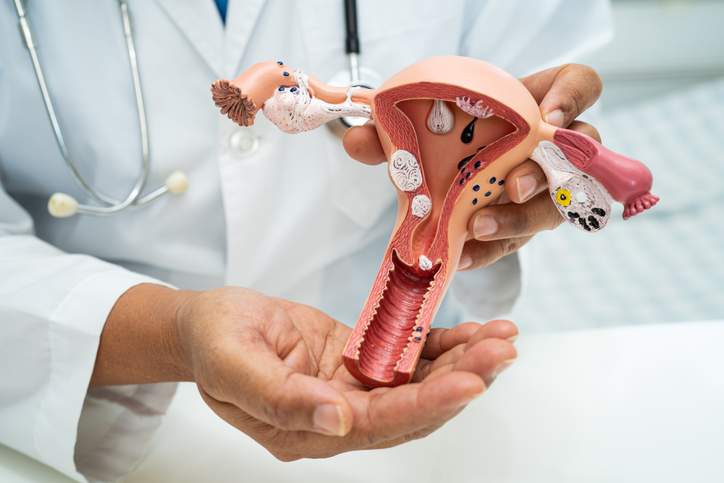- Heme Today
- Anemia
- Deep Vein Thrombosis
- Essential Thrombocythemia
- Hemophilia
- Immune Thrombocytopenic Purpura
- Myelodysplastic Syndromes
- Myelofibrosis
- Myeloproliferative Neoplasms
- PNH
- Polycythemia Vera
- Pulmonary Embolism
- Sickle Cell Disease
- Thrombocytopenia
- Thrombophilia
- Thrombosis
- Thrombotic Thrombocytopenic Purpura
- Venous Thromboembolism
- von Willebrand Disease
- Anemia
- Nephrology Times
- Breast Cancers Today
- Metabolic Care Today
- Cardiology
- Oncology
- Sleep
- Urology
- More
Rob Dillard
Articles by Rob Dillard
Anne Marie Morse, DOSleep Disorders | July 11, 2025
Sleep tourism is booming—but real sleep health needs more than a vacation, says Dr. Anne Marie Morse.Rob DillardDermatology | June 30, 2025
Pollution and climate extremes may raise atopic dermatitis risk in adults.Anne Marie Morse, DOSleep Disorders | June 25, 2025
AI is transforming sleep medicine, boosting access, streamlining care, and empowering clinicians—not replacing them.Rob Drolet, PhDNeurology | June 16, 2025
α-synuclein PET tracers may transform Parkinson’s diagnosis, tracking, and trials, says Merck’s Robert Drolet, PhD.Mithu Maheswaranathan, MDLupus | June 3, 2025
Discover how the 2024 ACR guidelines reshape lupus nephritis care with triple therapy and lower steroid doses.Rob DillardCervical Cancer | June 2, 2025
New biomarker 2,3,6-trichlorobenzaldehyde shows 95% accuracy in blood tests for early cervical cancer and CIN detection.Rob DillardCervical Cancer | June 2, 2025
Menstrual blood HPV testing shows 100% match with cervical smears—non-invasive, accurate, and preferred by most women.Dr. Sadie Dobrozsi, EvolentGenetics & Breast Cancer | May 15, 2025
Predictive genomics guides breast cancer care, helping tailor chemo decisions based on tumor gene expression.Eric Bergson, MDHead and Neck Cancer | April 24, 2025
Dr. Eric Dr. Bergson about the importance of head and neck cancer awareness, how to integrate screening into routine care.Rob DillardACC.25 | July 10, 2025
Gender disparities persist in clinical trials related to atrial fibrillation (AF) management.Rob DillardACC.25 | April 15, 2025
Contemporary films portray cardiac arrest in a misleading fashion.Rob DillardAAN 2025 | April 10, 2025
While neuroimaging has advanced with respect to autism/Down syndrome, ADHD still requires standard imaging protocols.Anne Marie Morse, DOSleep Disorders | April 10, 2025
Dr. Anne Marie Morse breaks down somniphobia and how it can impact healthcare providers and their patients.Rob DillardACC.25 | July 10, 2025
An EMR model can enhance postpartum heart screening in women with hypertensive disorders of pregnancy.Rob DillardACC.25 | July 10, 2025
A study shows geographic disparities that exist as they pertain to heart failure mortality and its association with obesity. Rob DillardACC.25 | July 10, 2025
GLP1 RA provides a notably superior weight loss option for people with obesity compared with bariatric surgery.Rob DillardACC.25 | July 10, 2025
A novel study shows a rising trend in cardiac tachyarrhythmia deaths related to obesity.Rob DillardACC.25 | July 10, 2025
A new study finds a striking increase in obesity prevalence among Black children during the COVID-19 pandemic. Rob DillardACC.25 | July 10, 2025
Telehealth parity laws notably reduce hospitalization in acute decompensated heart failure.Ro PatrickHealth & Wellness | March 31, 2025
Ro Patrick and Dr. Jose Prince talk about the responsibility and unique role HCPs play in helping to prevent gun violence. © 2025 Mashup Media, LLC, a Formedics Property. All Rights Reserved.
© 2025 Mashup Media, LLC, a Formedics Property. All Rights Reserved.





















